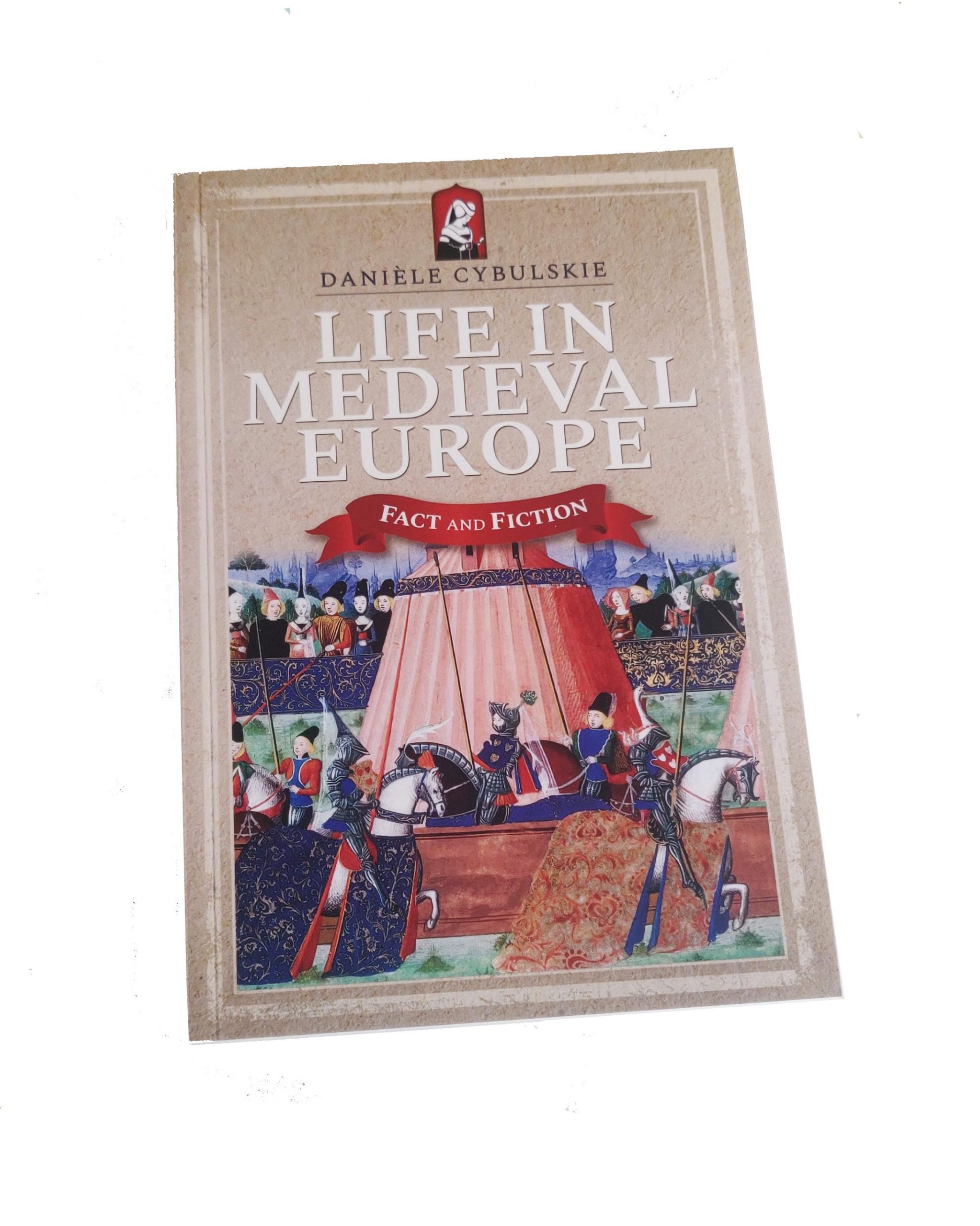There are some people who know all their lives that they’re going to be writers. Oddly enough, given that I’m currently finishing my fourth book, I wasn’t one of them. But all my life, I’ve loved books and loved sharing information, so maybe it was inevitable after all.
Besides a short stint as a ‘published’ author whose tiny little books were typed up by the school secretary and bound with packing tape when I was six, I didn’t write much for public consumption until I was in my late twenties. At that time, I’d just finished my master’s degree and was at home with my first baby, being slowly driven mad by sleeplessness and routine and by a persistent nagging that I needed to share my deep and abiding love for the much-maligned Middle Ages. Weirdly, mommy groups seemed much more interested in talking about changing tables than round tables, so my then-husband encouraged me to write a blog. I started writing as a hobby and a release valve more than anything else, but it led to my becoming the lead columnist for Medievalists.net, one of the biggest websites on the Middle Ages in the world, and it also led to my self-publishing two books: The Five-Minute Medievalist and The Five-Minute Medievalist’s Guide to Surviving the Zombie Apocalypse.
Like my entire writing journey, my entry into trade publishing was a little bit of fate and a little bit of Toni Morrison: ‘If you find a book you really want to read but it hasn’t been written yet, then you must write it.’ For years, I had wanted to write a book that was a readable, fun introduction to medieval history that gently corrected some of the myths and answered some of people’s most common questions; something between a light read and a reference book. I was at the point where I’d even written a book proposal but hadn’t submitted it anywhere yet, when out of the blue I received an email from Eleri Pipien who was commissioning for Pen & Sword and had had a similar idea. Life in Medieval Europe: Fact and Fiction, my first trade book, came out in September of 2019, and although I didn’t get to have a book launch here in Canada (the book had only just come out here right before COVID-19 hit), I’m very proud of it and learned a whole lot about writing and publishing from it.
Around the time Life in Medieval Europe was submitted, my work as a pseudo-journalist for Medievalists.net had landed me a job on the other side of the publishing table, doing acquisitions for Arc Humanities Press. At Arc, I learned the ins and outs of academic publishing, using my nose for trends to look for the next up-and-comers and my experience as a writer to shepherd others through the process. Although I have since left Arc to pursue other interests – notably, creating and hosting The Medieval Podcast and developing The Medieval Masterclass for Creators (an online course in which I offer tailored content and expertise to support creators of medieval fiction) – I have carried the lessons I’ve learned on both sides of the table to the writing of my forthcoming book How to Live Like a Monk: Medieval Wisdom for Modern Life.
Creating books, to my mind, is in many ways an act of service, so it’s important to figure out how best to serve people and to keep that always in the forefront of the work. More than ever, readers are seeking out non-fiction books that meet them where they are (in terms of both culture and knowledge), that entertain them and that teach them something new or give them a new perspective. Thanks to the very personal style of blogs and social media, they also want to read something by someone who sounds like a trusted friend, so, now more than ever, it’s not only okay to be your own authentic self, it’s pretty much a requirement.
Everything I’ve learned about writing and publishing in my own life aligns with a quote I’ve always found very resonant. A person’s vocation, according to Frederick Buechner, is where ‘your deep gladness and the world’s deep hunger meet.’ Many – if not most of us, I think – work with books because sharing knowledge, for us, is not just a job: it’s the place where our gladness meets the word’s hunger for entertainment, for information, for meaning, for escape.
While I may never have expected to become a writer, I have now realized that it is definitely part of my vocation. And how lucky we are, who work on and around publishing, to be part of this powerful, fulfilling, life-changing world of books.

